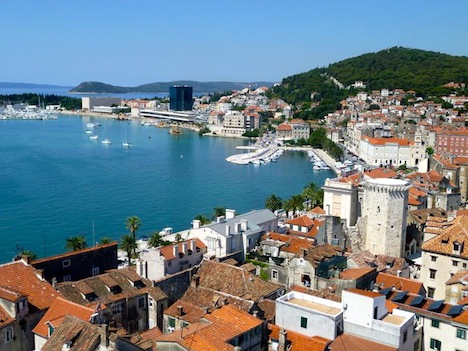Guest post by Michael J. Geary
With three days to go before Scotland votes on whether to cut the cord on its 300-year relationship with London, opinion polls indicate that the final result is simply too close to call.![]()
![]()
The ‘Yes’ campaign had narrowed the gap and last week’s polls have forced London and the British establishment to take evasive action. Some called on Queen Elizabeth II, on vacation at her Scottish estate, to make a statement in support of maintaining the Union. Others, fearing that the wind was behind the pro-independence movement, have adopted more Machiavellian tactics with claims that banks would abandon Scotland if the ‘Yes’ side won. Mark Carney, the governor of the Bank of England repeated that an independent Scotland could not use the pound. Most of the claims made by London seem as dodgy as the dossier that made the case for Britain’s involvement in the Iraq war; most of it does not stand up to objective scrutiny. But if ‘Team Independence’ wins on 18 September, what are Edinburgh’s immediate objectives and challenges?
* * * * *
RELATED: How an independent Scotland could enter the EU
RELATED: Why would an independent Scotland want to keep the pound?
* * * * *
Scotland is not the first sub-territorial entity to seek independence and will not be the last. There are almost 60 secessionist movements worldwide with claims to independence. Most face similar challenges post-independence, but modern Scotland is better equipped than most to successfully navigate these obstacles but examining past precedents.
Ireland exited the United Kingdom in 1921; Armageddon did not follow, although it did experience a brief civil war over the terms of the independence agreement, having failed to secure Northern Ireland. The Free State government adopted a new Irish pound, which was for a number of decades pegged to sterling and monitored by a currency commission. Dublin had no central bank until 1943 and the Bank of Ireland acted as banker to the government until the early 1970s. Having left the Commonwealth, Ireland sought greater interdependence from Great Britain through full membership of all the main international organizations, including the United Nations, the Council of Europe, the Organisation for European Economic Co-operation, the International Monetary Fund, and the European Communities.
For Scotland, the first 18 months after a ‘Yes’ result will be crucial not only for finding a solution to the currency question but also in securing membership within the international community. Continue reading After Independence Day: The Road Ahead for an Independent Scotland


